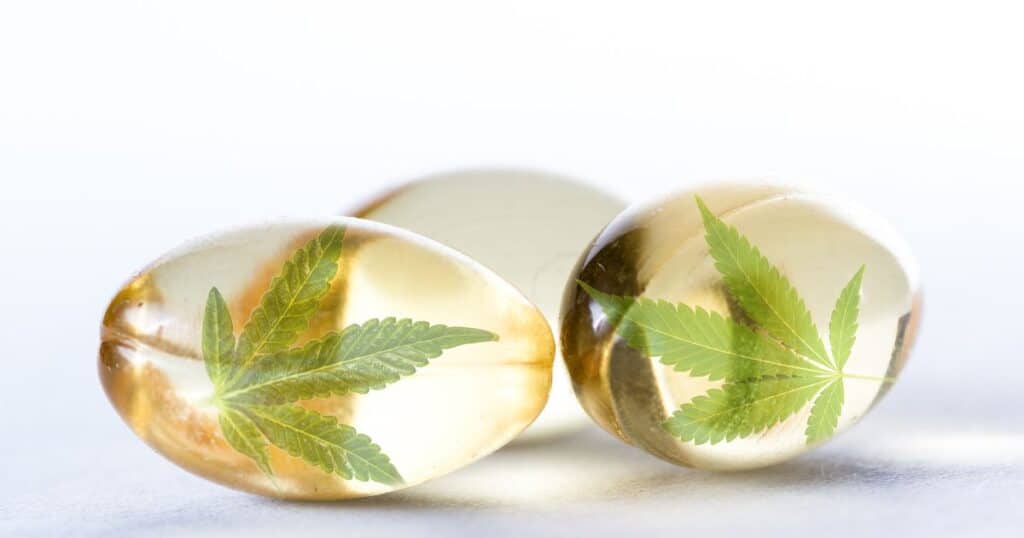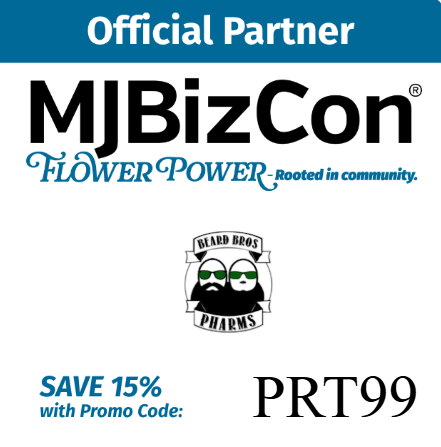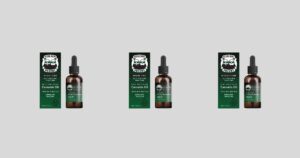On 17 July 1971, United States President Richard Nixon designated drug abuse as “public enemy number one” while declaring an infamous war on drugs. What followed were years of violent tactics (such as torture), excessive prison sentences, and drug disinformation.
The blatant anti-drug propaganda has led to several false narratives around cannabis, including the idea that marijuana is a gateway drug. This idea has been repeatedly rebuffed by objective research and analysis, perhaps most emphatically by a U.S. Department of Justice research report, which concluded that no causal link between cannabis use and the use of other drugs exists. Perhaps the most deceiving prevailing lies concern one of the many chemicals found in cannabis, tetrahydrocannabinol (THC).
Anti-marijuana groups have centered their perception of cannabis plants on THC to the exclusion of all other plant elements. The benefits of hemp (cannabis plants with a negligible concentration of THC) for fibers and food have been known for centuries. Additionally, marijuana contains over 60 other cannabinoids apart from THC, including cannabidiol (CBD).
To help sift through the agendas and misinformation, we’ve crafted the ultimate comparison guide between THC and CBD.
What is THC, and What is CBD?
THC is the most abundant cannabinoid in marijuana and is primarily responsible for the plant’s psychoactive effects. These effects can include heightened senses, euphoria, increased appetite, and feelings of relaxation. This is why THC is often associated with the marijuana “high.”
CBD, on the other hand, is a non-intoxicating cannabinoid and is the second-most abundant cannabinoid found in marijuana plants. While CBD doesn’t produce the strong psychoactive effects of THC, it still has many potential uses.
What THC and CBD are Both Used For
While high-concentration THC marijuana is only federally approved for a few conditions, including various severe epilepsies, Dravet syndrome, and Lennox-Gastaut syndrome, medical marijuana that is high in THC content is currently being explored for the treatment of a variety of conditions, including cancer, post-traumatic stress disorder (PTSD), nausea, pain management, Crohn’s disease, and Alzheimer’s disease.
On the other hand, CBD enjoys much more relaxed regulation regarding its research, production, sale, and use. The FDA removed barriers to researching CBD as early as 2015, and in 2018 hemp (or THC-free cannabis) was made federally legal. According to Harvard Medical School’s Harvard Health Publishing, CBD is reported to assist with various conditions, including anxiety, insomnia, pain management, and substance abuse.
Methods of Consumption for THC and CBD
There are a variety of methods for consuming both THC and CBD. To experience the effects of THC, smoking dried flowers or resin are not the only options. THC can also be consumed through edibles, tinctures, capsules, powder, and topical creams.
CBD primarily comes in oil, but can also be smoked as flower, vaped, and found in topical creams. CBD oils can readily be added to coffees, smoothies, and cocktails.
The Benefits and Drawbacks of THC
THC has many potential medical benefits, but it also has some drawbacks. Here are some of the benefits and drawbacks of THC:
Benefits of THC:
- Pain Relief: THC is known for its analgesic properties, which can help relieve pain caused by various conditions, including migraines, neuropathic pain, and arthritis.
- Increased Appetite: THC can stimulate the appetite, making it useful for individuals with eating disorders or for patients undergoing chemotherapy or radiation therapy who have lost their appetite.
- Muscle Relaxation: THC can help relax the muscles and reduce spasms, making it useful for patients with multiple sclerosis, Parkinson’s disease, or spinal cord injuries.
- Mood Enhancement: THC can produce a sense of euphoria, which can help alleviate symptoms of depression, anxiety, and stress.
Drawbacks of THC:
- Impairment: THC can impair judgment, coordination, and reaction time.
- Memory Impairment: THC can affect short-term memory, making it difficult to remember recent events or information.
- Paranoia and Anxiety: High doses of THC can cause paranoia and anxiety, especially in individuals predisposed to these conditions.
The Benefits and Drawbacks of CBD
CBD also has many potential medical benefits and is generally considered safe and non-addictive. Here are some of the benefits and drawbacks of CBD:
Benefits of CBD:
- Anxiety Relief: CBD has been shown to reduce anxiety in patients with social anxiety disorder and post-traumatic stress disorder.
- Pain Relief: CBD can help alleviate pain caused by various conditions, including neuropathic pain, arthritis, and multiple sclerosis.
- Anti-Inflammatory: CBD has anti-inflammatory properties, which can help reduce inflammation and swelling associated with conditions such as acne, psoriasis, and arthritis.
- Neuroprotective: CBD has neuroprotective properties, which can help protect the brain from damage caused by conditions such as Alzheimer’s and Parkinson’s.
Drawbacks of CBD:
- Interactions with Medications: CBD can interact with some medications, including blood thinners, and can either increase or decrease their effects.
- Dry Mouth: CBD can cause dry mouth, which can be uncomfortable for some individuals.
- Lack of Regulation: CBD products are not regulated by the FDA, which means that the quality and potency of these products can vary widely.
Methods of Consumption for THC and CBD
Here are several methods of consuming THC and CBD, including:
- Smoking: The traditional way of consuming THC, and in lesser frequency CBD, is by smoking dried flowers or resin. This method produces a fast onset of effects but can be harsh on the lungs and throat.
- Edibles: THC and CBD can also be consumed through edibles, such as brownies, cookies, and gummies. This method produces a slower onset of effects but can be more potent and long-lasting.
- Tinctures: THC and CBD tinctures are liquid extracts placed under the tongue or mixed into food or drinks. This method produces a fast onset of effects and allows for more precise dosing.
- Topicals: THC and CBD topicals are creams, balms, and salves applied directly to the skin. This method is helpful for localized pain and inflammation.
- Vaping: THC and CBD can also be consumed by vaping, which involves inhaling a vaporized oil or liquid. This method produces a fast onset of effects but can harm the lungs.
- Suppositories: THC and CBD can be used in a suppository. A suppository is another way to deliver a drug. It’s a small, round or cone-shaped object that you put in your body, often into your bottom. Once it’s inside, it melts or dissolves and releases its medication.
Why THC and CBD Should Be Consumed Responsibly
While neither THC nor CBD should be feared, it’s essential to consume these cannabinoids responsibly. Here are some reasons why:
- Safety concerns: Smoking or vaping any substance can harm the lungs, and cannabis is no exception. Inhaling hot smoke or vapor can irritate the airways, cause coughing, and increase the risk of infections or lung diseases. Similarly, consuming edibles that contain high doses of THC can lead to adverse effects such as paranoia, anxiety, rapid heart rate, and impaired coordination.
- Legal risks: Despite the recent changes in cannabis laws, possession, distribution, or cultivation of cannabis is still illegal in many states and countries. In some places, even the use of CBD is restricted or prohibited, especially if it comes from marijuana instead of hemp. Therefore, it’s important to know the local laws and regulations regarding cannabis and to follow them accordingly.
- Personal preferences: Not everyone likes the effects of THC or CBD, or they may prefer different strains or products based on their individual needs or tastes. Therefore, starting with a low dose is essential; try other products and listen to your body to avoid unpleasant experiences or wasting money on ineffective or unsuitable products.
- Social stigmas: Although the cultural attitudes towards cannabis are changing, there is still a significant amount of stigma and discrimination associated with the use of cannabis, especially if it’s for recreational purposes. Therefore, it’s essential to be mindful of how one’s cannabis consumption may affect their personal or professional relationships and to educate others about the benefits and safety of responsible cannabis use.
Why Neither THC nor CBD Needs to be Feared
Despite the fear-mongering surrounding THC and marijuana, responsible laws and education can help ensure its safe use. Marijuana is significantly less harmful than alcohol and tobacco, both of which are legal in most countries.
In terms of CBD, it is essential to note that while it is generally considered safe, it can interact with other medications, so it is essential to speak with a doctor or healthcare provider before using CBD. Additionally, while the FDA has approved CBD for treating certain conditions, it has not been fully studied, and more research is needed to understand its effects fully.
Conclusion
In conclusion, THC and CBD are two of the many chemical compounds in the cannabis plant. THC is primarily responsible for the plant’s psychoactive effects, while CBD is non-psychoactive and has many potential uses.
THC and CBD can be consumed in various ways, and while there are potential risks associated with their use, education and regulation can help mitigate these risks, as well as create new generations of responsible THC and CBD users.
Enjoyed that first hit? Come chill with us every week at the Friday Sesh for a freshly packed bowl of the week’s best cannabis news!

















